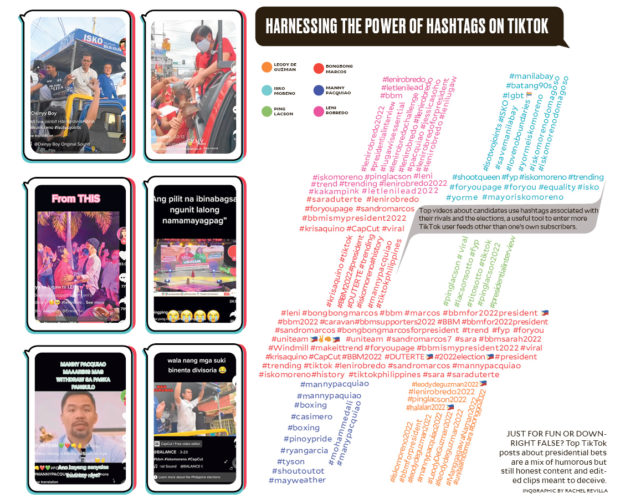MANILA, Philippines - As soon as Vice President Leni Robredo hit the hustings in her hometown of Naga City in Camarines Sur, bite-sized videos bearing false claims related to the presidential hopeful started circulating on social media.
A short video taken during her proclamation rally on Feb. 8, viewed hundreds of thousands of times on Facebook and on TikTok, a popular entertainment platform among the youth, contained altered audio that made it sound like her audience was chanting "BBM" in support of her main rival Ferdinand "Bongbong" Marcos Jr.
In another misleading TikTok video, Robredo was accused of cheating during the CNN Philippines presidential debate because she appeared to be checking notes while answering a question about the West Philippine Sea. In fact, they were notes she had taken during the debate, not "kodigo" (cheat sheets).
These are the kinds of video content that Hannah Barrantes, a corporate lawyer who does independent fact-checking on TikTok, fears: short, entertaining, and digestible propaganda based on falsehoods that are swiftly shared "without leaving anything to ponder on."
With only a handful of legitimate fact-checkers in the media industry, disinformation on the platform has become so widespread that independent fact-checkers like Barrantes and others - or "TruthTokers" as they call themselves - felt compelled to clean up the platform.
"While we aren't yet the majority on the platform, it's satisfying to see real people pushing back (against disinformation) there," she said. "It also leads to a ripple effect, where former staunch supporters whom we engage (became) enlightened and shift their options."

